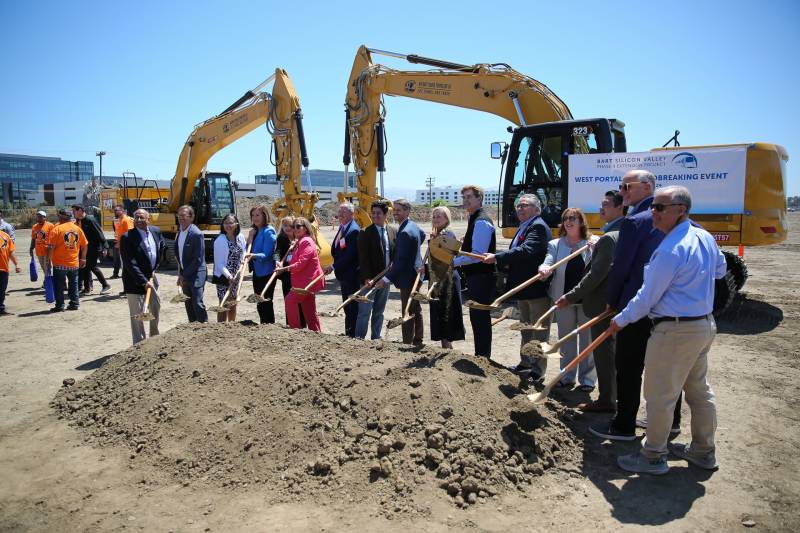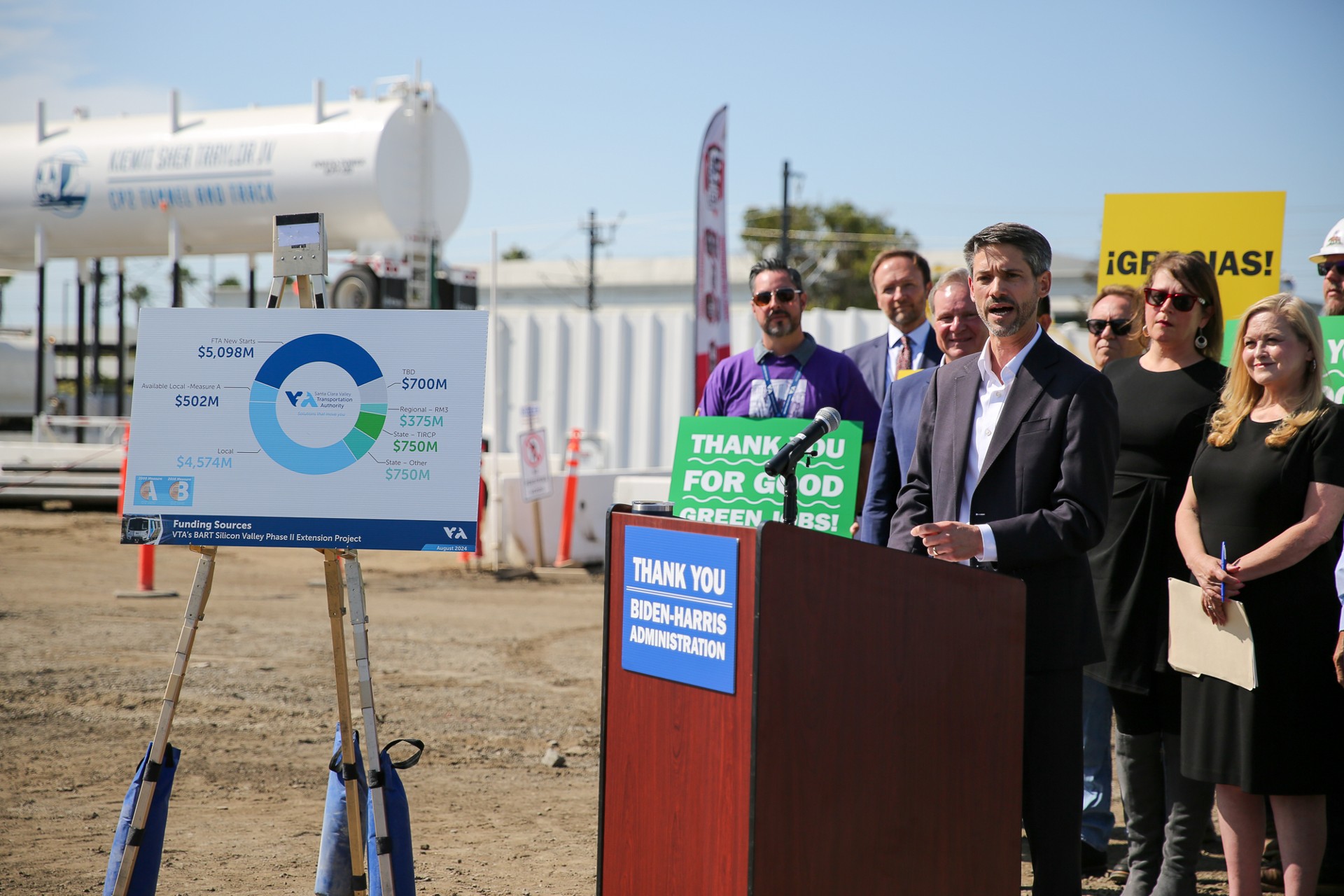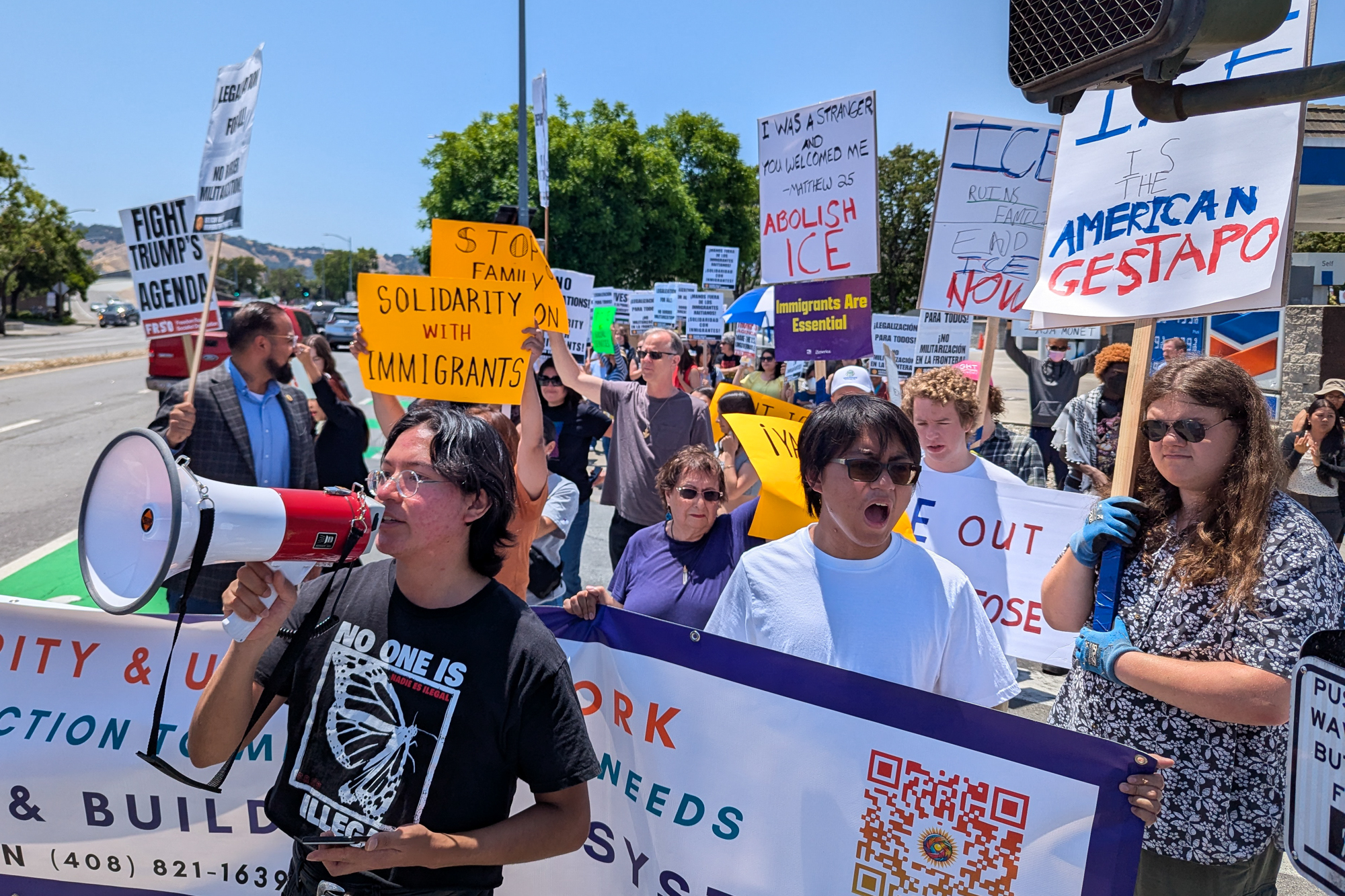The BART extension notched a major milestone in August when the Federal Transit Administration said it would commit $5.1 billion to help pay for the project. While significant, the pledge also left a roughly $1.2 billion gap in funding for the project, which is also being largely paid for with regional tax measures.
Transit officials and local leaders said at the time they were confident the budget hole could be addressed, in part by allocating $500 million more from a regional tax measure into the project than was previously committed. The remaining gap of roughly $700 million is still pending.
While the federal funds were pledged under President Joe Biden’s administration, the agency would need to apply for a grant agreement to access the money from the government.
While officials said the agency is confident the project will still be a viable one in the eyes of the federal government as it works through balancing its budget, Maguire noted that VTA “has gotten some pretty clear advice” against asking for $5 billion from a Trump-controlled Federal Transportation Administration right now.
Trump’s administration has recently pulled back billions for the state’s long-delayed High Speed Rail project, and a $20 million grant to improve transit between Treasure Island and San Francisco.
VTA General Manager Carolyn Gonot said the decision to hold off on applying for the funds is largely based on needing to cut costs, but acknowledged it is partially political.
“We also need to get a clear and better understanding about what the administration wants to see,” Gonot said.
Campbell Mayor Sergio Lopez, the chair of the VTA board and the vice chair of the oversight committee, said that by evaluating tough decisions like this one, the agency is showing the leadership necessary to keep the project going.
He acknowledged that there haven’t been major problems with KST’s work to date.
“It’s not about quality, it’s not about safety. There’s complete alignment on those. It’s really just disagreements about the costs and the services,” Lopez told KQED Monday. “But when we went out to multiple respected independent cost estimators, there was just a stark gulf in terms of the expected cost.”
Maguire didn’t share details about how much the agency expects to save through finding a new contractor, but said it would be one part of an overall price reduction strategy.
In addition to shopping around, the agency is looking at reshaping the tunneling contract package, as well as changing the risk-sharing agreement between VTA and a potential new contractor, and adjusting the schedule of the work.
“We remain fully committed to finding ways to cut costs and reduce the overall program schedule to ensure that we stay within our overall funding and budget,” Maguire said. “We do think that the offramp and restructuring the tunnel contract is going to give us a better price, and that better price is going to help us secure the long-term viability of the project.”
The oversight committee and board will also hear more details about other potential cost-saving measures in upcoming meetings, including a value engineering report. The agency also plans to share long-awaited results of an independent consultant’s analysis of the VTA’s twin-bore construction alternative and cost estimates.
The agency has long been committed to a huge, single tunnel design that would be deeper underground than standard BART tunnels, but has faced increasing criticism for previously dismissing a shallower, two-tunnel approach, which could disrupt businesses and traffic on city streets for years.
It’s unclear if KST would sue VTA over the ending of the contract or other aspects of the agreement with the agency. Maguire acknowledged “you can never say never,” about being sued, but said the agency is confident “we’ve got a very, very strong case moving forward, and we’re not deeply concerned about an action from [KST].”
San José Mayor Matt Mahan, the chair of the oversight committee, said in a statement he supports VTA’s efforts to control costs on this “once in a generation” project.
“We don’t have a blank check for this project, and it’s important that everyone — from the agency to its contractors — is held accountable for staying within budget,” he said.
VTA officials will first make the offramp recommendation to the BART Silicon Valley Phase II Oversight Committee at its meeting on June 12 at noon. The full VTA Board of Directors, who have the final say on the decision, will consider the recommendation at its meeting on June 27 at 9 a.m.
“VTA remains unwavering in its commitment to complete this extension of the BART service to Silicon Valley and produce these last six miles in a way that is financially responsible, technically sound, and fully accountable to the public,” Gonot said Monday.
“So every decision we make is rooted in our responsibility to deliver a project that transforms our region with transparency, efficiency and lasting benefits.”



